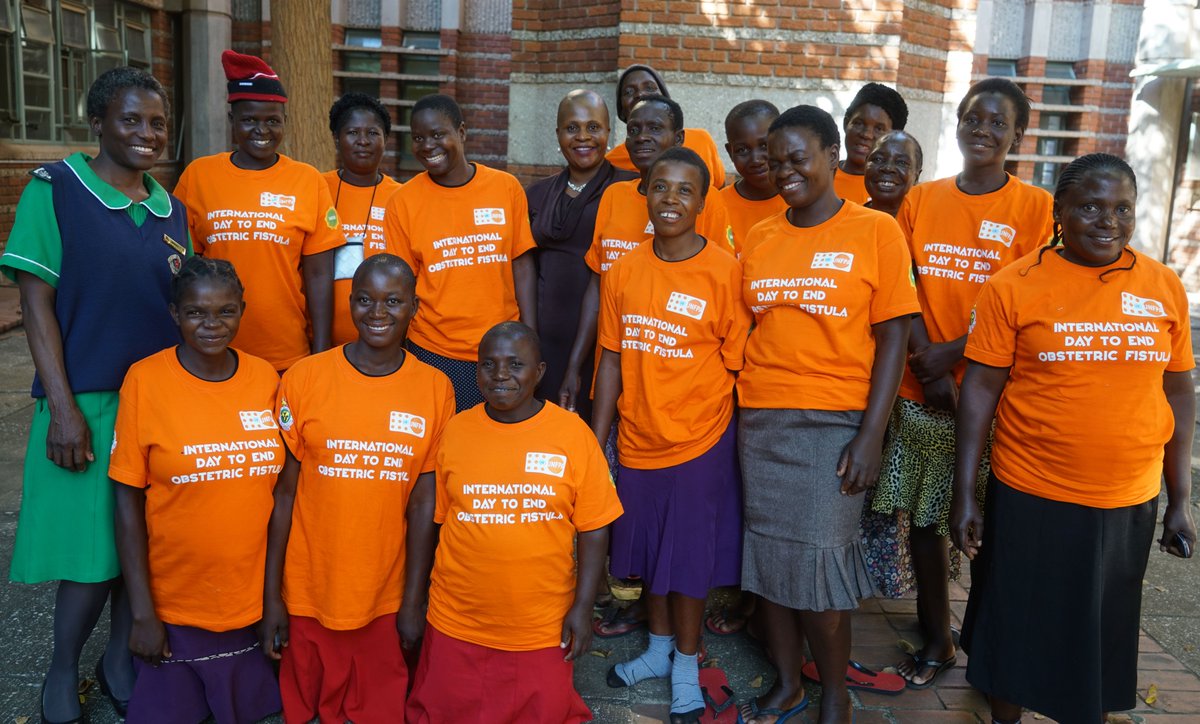A total of 397 women in Zimbabwe have benefitted from repair surgery conducted at fistula repair centres under the Campaign to End Obstetric Fistula led by the Ministry of Health and Child Care and implemented with financial and technical support from UNFPA and Women and Health Alliance International (WAHA).
The majority of surgeries were conducted at Chinhoyi Provincial Hospital, the current centre of excellence for fistula repair since 2015. In 2015 UNFPA supported Ministry of Health and Child Care on a learning mission to Ethiopia resulting in the launch of the Obstetric Fistula programme. To date 58 health personnel that include nurses and doctors, have been trained in the pre and post- operative management of Obstetric Fistula through a mentorship programme with WAHA and MOHCC.
Obstetric fistula is one of the most serious and tragic injuries that occur during child birth. It is a hole between the birth canal and the bladder or rectum. It is caused by prolonged or obstructed labour without timely access to emergency obstetric care, notably a Caesarian section. It leaves women leaking urine, faeces or both and over time, it leads to chronic medical problems.
As the world today commemorates the International Day to End Obstetric Fistula, UNFPA remains committed to supporting the Ministry of Health and Child Care to ensure the accessibility of fistula repair facilities to women whose lives have been negatively affected by fistula. Women with fistula are often ostracized in the society and endure depression and poverty because they cannot work with the condition. Many are abandoned by their husbands and families further driving them into poverty. Their isolation means they often go unnoticed by policy makers and as a result little action is taken to address their condition.
“Since the programme began in 2015 we are very happy that we restored the dignity of at least 397 women who are now living normal lives today,” said Dr Esther Muia, UNFPA Country Representative. “More needs to be done to ensure that these facilities are easily accessible to women suffering from this condition regardless of their location.”
Dr. Muia said while corrective surgery is important the key to addressing the problem of obstetric fistula is preventing its occurrence.
“We must ensure that every woman delivers in a health facility where they can access appropriate care and emergency obstetric care in the event that complications arise during delivery. Additionally, providing Family Planning to those who want, could reduce the number of women dying or being injured during child birth by at least 20 per cent.”
Dr. Muia added that communities have a role to play in preventing obstetric fistula by discouraging child marriages as young girls often get fistula injuries during child birth as their bodies would not have matured for child birth. Other underlying factors that contribute to women and girls’ marginalization, including lack of access to health services, education and failure to protect human rights must also be addressed.
The Campaign to End Fistula is implemented under the Health Development Fund with support from the Governments of Britain, Ireland, Sweden and the European Union.
Women with this condition requiring surgery can call on toll free number 08080231 for further assistance.
